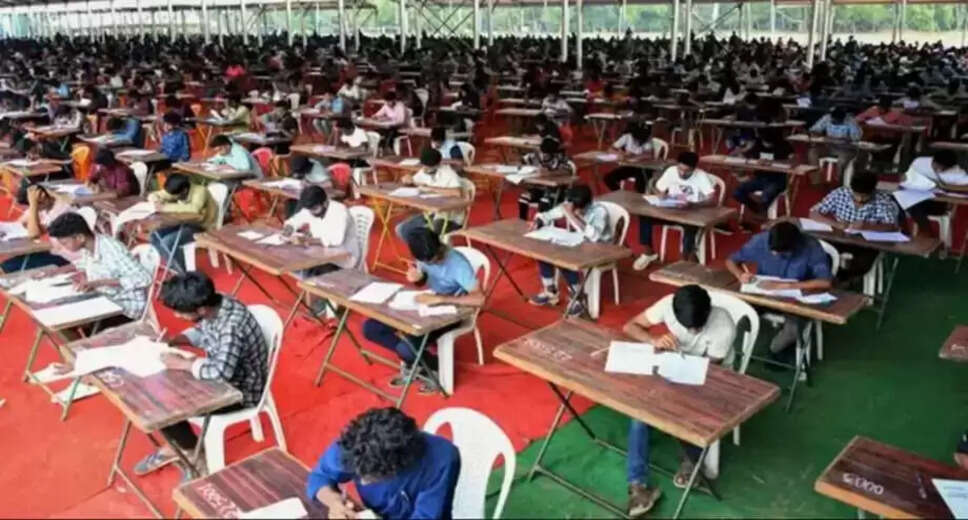Essential Tips for Success in the UP Police Constable Recruitment Exam

Preparing for the UP Police Constable Exam
To excel in the upcoming UP Police Constable Recruitment Exam set for November, candidates should begin their preparations immediately. This exam presents a significant opportunity for youth, with limited positions available. Experts recommend dedicating a few hours each day to study, coupled with an effective strategy. Candidates should allocate equal time to Hindi, Mathematics, Reasoning, and General Knowledge. Additionally, regular running and physical exercise are crucial for the physical assessment. Consistent effort and disciplined study habits are vital for success in this exam.
Understanding the Competition
The Uttar Pradesh Police Constable Recruitment Exam is among the most sought-after in the state. According to Ajit Nagar, Director of Perfect Academy, approximately 40 to 50 lakh candidates apply annually, but this year only 20 to 22 thousand positions are available. This creates a highly competitive environment, making thorough planning and preparation essential for success.
Exam Structure
What to Expect in the Exam?
Ajit Nagar outlines that the exam comprises four stages, starting with a written test. This test includes 150 questions worth a total of 300 marks. Each correct answer earns 2 points, while incorrect answers incur a penalty of 0.5 points. The breakdown of the questions is as follows: 37 questions in Hindi and Reasoning (74 marks each), and 38 questions in Mathematics and General Knowledge (76 marks each). Candidates must achieve a minimum of 35% in each subject. Following the written exam, candidates will undergo a physical efficiency test, where men must complete a 4.8-kilometer run in 25 minutes, and women must run 2.4 kilometers in 14 minutes. Physical measurements, document verification, and a medical examination will follow.
Key Subjects to Focus On
Subjects to Prioritize
Nagar emphasizes that students from the UP Board may have an edge in Hindi due to their familiarity with the language, while those from CBSE and ICSE backgrounds may need to put in extra effort. He identifies reasoning as the most challenging subject, recommending that candidates seek expert guidance for preparation. For General Knowledge, he advises focusing on key topics rather than attempting to cover everything. Resources such as coaching centers, libraries, and online materials can be beneficial.
Physical Preparation is Crucial
Importance of Physical Fitness
Ajit Nagar stresses that passing the written exam alone is insufficient; physical fitness is equally important. Male candidates must complete a 4.8-kilometer run in 25 minutes, which requires consistent training. Developing a routine that includes running, push-ups, and overall fitness is essential. He suggests that the morning hours are optimal for studying, and if candidates dedicate time from 4 to 7 AM daily, three months of focused preparation can be adequate. With 90 days available, or about 450 hours, studying five hours each day significantly enhances the likelihood of success.
Managing Expectations
Nagar advises against placing excessive expectations on students. He identifies mobile phones and social media as major distractions, urging students to use these tools solely for educational purposes to avoid wasting valuable time. Parents are also encouraged to refrain from overwhelming their children with pressure, as this can lead to stress and hinder performance. Failing an exam is not the end; life itself is a continuous test. Nagar concludes by stating that with hard work, focus, and belief in their abilities, students can achieve their goals.
